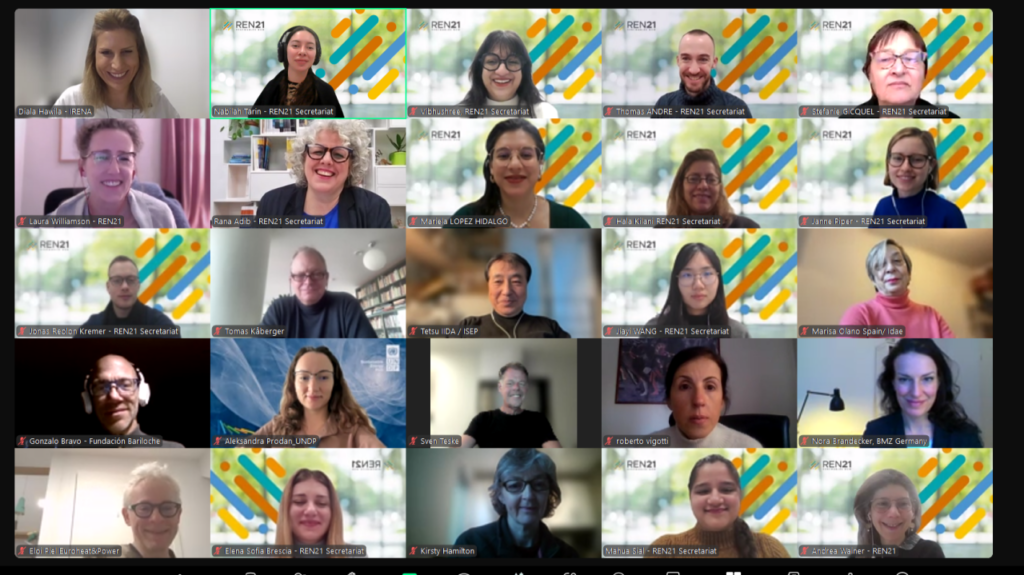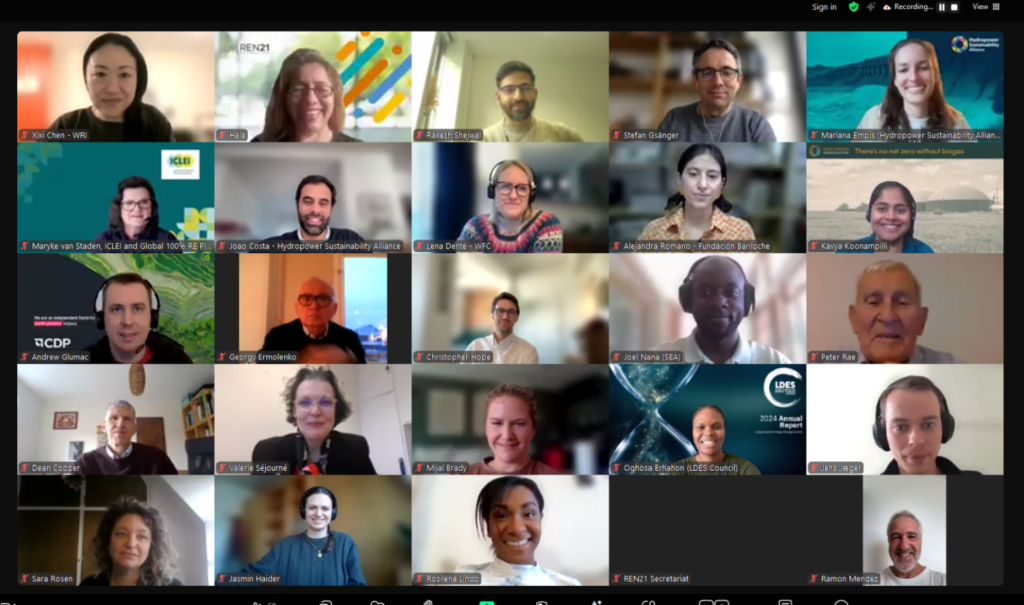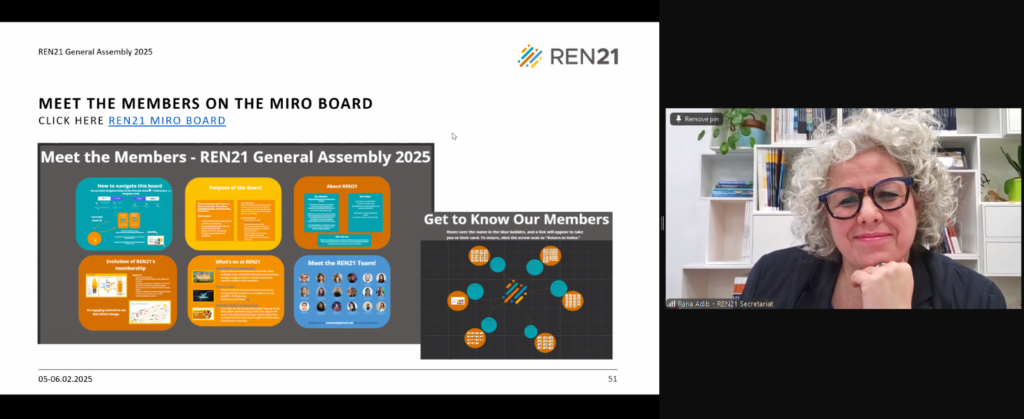

On 5-6 February 2025, REN21 members gathered at the General Assembly and unanimously approved a landmark strategy. The incoming strategy aims to harness the power of REN21’s multi-stakeholder network and drive systemic change toward renewables-based economies for more prosperous societies.

This strategy underscores the importance of collective advocacy by uniting REN21’s diverse membership to drive rapid, lasting change— fundamentally reshaping economies around renewables, embedding them in economic and policy decisions. The new strategy relies on REN21’s strength as a trusted, inclusive network to take bold action that leads to an equitable and rapid energy transition.
Commitments at COP28to triple renewable capacity, double energy efficiency by 2030 and transition away from fossil fuels have set a new momentum COP29 has seen rising attention to infrastructure – grids and storage – as well as green corridors. However, to truly achieve these targets, a systems change approach is necessary.
“We are in a new era”, said REN21 Executive Director Rana Adib, where attention is increasingly focused on renewable energy infrastructure and energy efficiency. However, structural barriers rooted in the fossil fuel economy still hold back progress.

Adib also acknowledged the, “We need a fundamental paradigm shift—not just replacing fossil fuels with renewables but building economies that are inherently driven by renewables. This strategy builds on our community’s insights and collective strength to drive that change at all levels—policy, finance, and social/societal norms”.
Co-created through extensive consultation, engaging over 130 players across the energy sphere and beyond, the new REN21 strategy highlights the importance of breaking silos, integrating renewables across all sectors— heating, cooling and transport and other energy consuming sectors — beyond power generation, and amplifying diverse voices. It also sets out an ambitious plan to build knowledge, facilitate dialogue, and mobilise strategic alliances.
Based on three key pillars–dialogue and debate, knowledge, and communications, the new REN21 strategy aims to mobilise organisations and individuals with a through a focus on systemic change, ensuring that renewables are not just an alternative but the base of our economies and a clear choice for people and nature.
A key pillar of the strategy is shifting public and political perceptions of renewables, emphasising their role as economic drivers, catalysts for resilience, and enablers of energy security. The newly launched #RebootTheWorldcampaign is a testimony of REN21’s new focus on storytelling to illustrate the benefits of renewables for the economy and society. The more we delay the shift to renewables; the more people miss out on their economic and social benefits.
The General Assembly also gave a strong support for new “REN21 Change Labs,” which will serve as innovation hubs led by the REN21 network. These spaces will trigger concrete and action-oriented conversations to tackle critical challenges and prototype solutions.
The 2025-2030 strategy positions REN21 as a key actor in the evolving renewables landscape, ensuring that renewables remain at the forefront of global discussions. With REN21 members reaffirming their commitment, the strategy is set to drive positive change in the years ahead.

“REN21 is more than a membership-driven organisation; we are a network of networks representing different stakeholders, regions, ecosystems/sectors and governance levels,”, Adib noted. “We must leverage this diversity to drive an equitable and resilient energy transition, ensuring no one is left behind,” she concluded.
REN21 thanks all its members for their engagement during the General Assembly and their valuable contributions at multiple previous consultations which led to the development of a strong strategy direction.